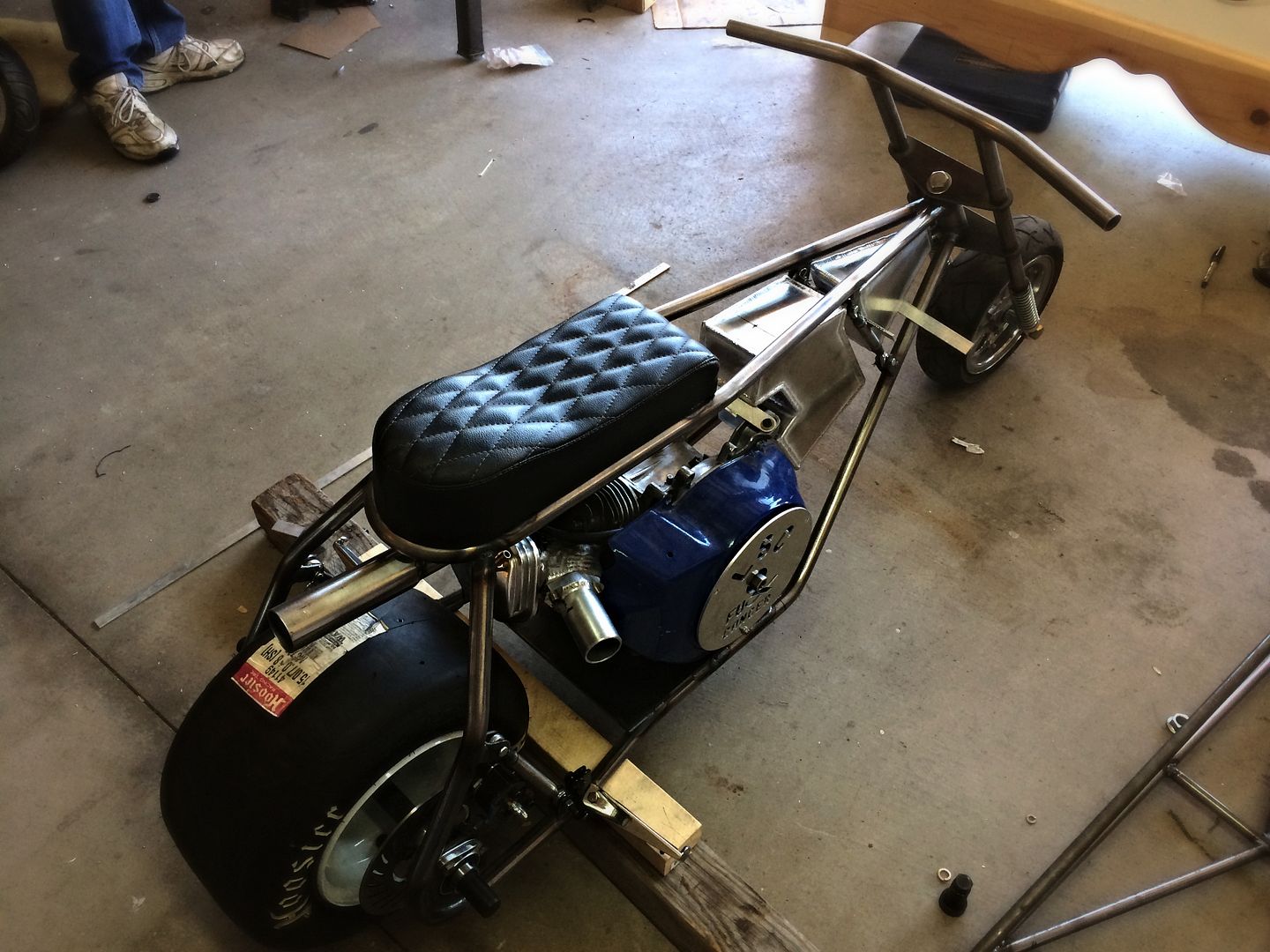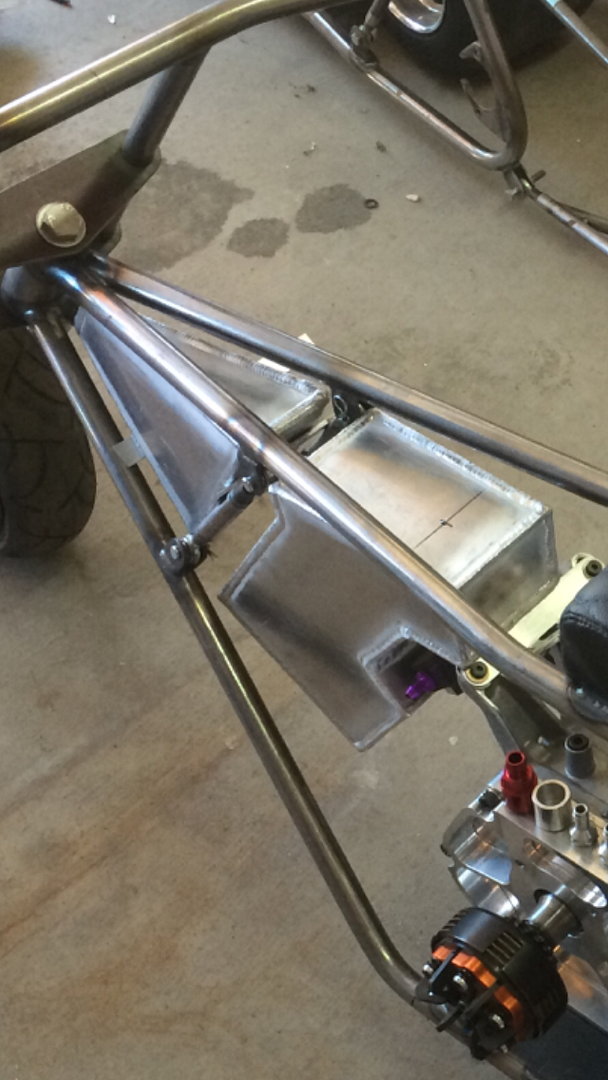I'm about a year into TIG welding and I can't help but wonder, guys, what is your true torch angle? In all the books and newbie videos, everyone says no more than 10-20 degrees, so close to vertical. But when I see real welding videos and pictures, the torches seem to be almost always closer to 30 or maybe even 45 degrees.
I understand for pipe welding, any off-vertical angle is exacerbated by the curvature of the surface so you want just a little bit of angle to wash the puddle forward. But over the past week or two I've been battling to learn outside corner welds on thin aluminum and one of the things that made me much more successful was ADDING torch angle... The problem I was having is as I'd move off the puddle, instead of the puddle coming with the torch, the puddle would spread and I'd often melt the joint through.
I concede that this is probably fixable with better technique and pedal manipulation but it generally reminded me that I've been meaning to start this thread for a while. This forum is pretty good at not chastising people for not invariably doing the best practice things so what say you seasoned guys, is torch angle another one of those things where the answer is, "it depends"?
Tig welding tips, questions, equipment, applications, instructions, techniques, tig welding machines, troubleshooting tig welding process
LS Customs
- LS Customs
-
Ace

-
Posts:
-
Joined:Tue Feb 23, 2016 11:56 pm
im probably more of a newbie compared to most of the members on here... but thought i would give my opinion, from my experience at it thus far...
without trying to be too technical, I start out, always trying to be perpendicular with the surface (and no matter the angle of the torch trying to hold the rod at a 90 degree-ish angle to that)... very slight angle with the torch, until i can see the puddle clearly.. more importantly, i know the angle it is too aggressive of an angle, if the rod starts to ball up and melt before i dip it in the puddle... so as i move along, or around an object, if i notice the rod start to melt prior to me dipping it into the puddle, then i immediately decrease the angle, or know to stop and re-position... i am fairly comfortable now, welding with both hands and around objects, etc...
in this video (around the 1:23 mark), while welding the bungs on the project, when i stopped, it was because i needed to re-position because the angle started to get too aggressive... and i could tell, as the rod would just start to melt back... hope that makes sense...
UVXUZ0xHRQY
without trying to be too technical, I start out, always trying to be perpendicular with the surface (and no matter the angle of the torch trying to hold the rod at a 90 degree-ish angle to that)... very slight angle with the torch, until i can see the puddle clearly.. more importantly, i know the angle it is too aggressive of an angle, if the rod starts to ball up and melt before i dip it in the puddle... so as i move along, or around an object, if i notice the rod start to melt prior to me dipping it into the puddle, then i immediately decrease the angle, or know to stop and re-position... i am fairly comfortable now, welding with both hands and around objects, etc...
in this video (around the 1:23 mark), while welding the bungs on the project, when i stopped, it was because i needed to re-position because the angle started to get too aggressive... and i could tell, as the rod would just start to melt back... hope that makes sense...
UVXUZ0xHRQY
See for curved surfaces it makes total sense to me, I also keep it almost perpendicular to the tangent where I'm welding. But would you do that for say a straight inside corner joint?
LS Customs
- LS Customs
-
Ace

-
Posts:
-
Joined:Tue Feb 23, 2016 11:56 pm
again, im just a newbie and i dont often like to get involved in threads where questions are asked, but just sharing what i have doneBigD wrote:See for curved surfaces it makes total sense to me, I also keep it almost perpendicular to the tangent where I'm welding. But would you do that for say a straight inside corner joint?
where there are just two sides... it would be the same, slight angle and rod at about a 90... where you have three sides coming into one (if you were welding the inside of a cube like part), would have longer tungsten stickout than normal (i use gas lenses) and hold the torch at an angle, which would seem almost parallel with one of the sides, with proper gas coverage (hope that makes sense)... and then the filler rod same 90 ish or whatever angle i could get it in there... not sure how to explain what im saying, not even sure if im doing that type of weld right, havent made may welds like that, but have made them... and was comfortable will welding the inside corners...
LS Customs
- LS Customs
-
Ace

-
Posts:
-
Joined:Tue Feb 23, 2016 11:56 pm
when i made the tank closest to the seat, i began welding up the inside also, because i wasnt sure whether or not i was going to polish out the welds on the outside, if i didnt like how they came out appearance wise... but i ended up leaving them alone... and not trying to weld up so much of the inside... was going to try to weld the whole thing up from the inside, other than the very top, as that would have been impossible...

was alot of inside corners...


was alot of inside corners...

LS Customs
- LS Customs
-
Ace

-
Posts:
-
Joined:Tue Feb 23, 2016 11:56 pm
i watched a few of these vids before starting it... and pretty much followed the guidance given.. actually answers your question in the video too
-tsii6D-WyM
-tsii6D-WyM
Thanks for the link, been a long time since I've seen that video. The other inside corner alu video Jody has is an example of what I mean where it looks like the torch has a pretty significant angle. In this video too, the pyrex shot looks like it has more torch angle. But that is probably a function of needing to show the camera what's going on.
LS Customs
- LS Customs
-
Ace

-
Posts:
-
Joined:Tue Feb 23, 2016 11:56 pm
no problem... yeh im thinking was more to get the shot... when i have welded the typical joint, where you are not running into the corner of a third side.. just the typical tungsten stick out and a slight angle so i can see the puddle and arc... but hopefully you got your answer Jodys vid... or someone else with tons of experience answers up... if you are still wanting more opinion on it, sometimes pics of what you are doing help people to see what you are trying to do also... and that may help them to give advice...BigD wrote:Thanks for the link, been a long time since I've seen that video. The other inside corner alu video Jody has is an example of what I mean where it looks like the torch has a pretty significant angle. In this video too, the pyrex shot looks like it has more torch angle. But that is probably a function of needing to show the camera what's going on.
Last edited by LS Customs on Tue Oct 25, 2016 5:30 pm, edited 1 time in total.
Thanks, yeah I'm not really looking for the "right" answer, I know what the best practice is but I'm curious what everyone else does in real life and when.
exnailpounder
- exnailpounder
-
Weldmonger

-
Posts:
-
Joined:Thu Dec 25, 2014 9:25 am
-
Location:near Chicago
I use a very slight angle. If you are melting your filler before you get it in the puddle, you are at a bad angle. The whole idea is to puddle, add filler and move ahead so if your angle is exaggerated then you will be pushing the puddle downstream and not getting the stacked dimes look but kind of a ropey looking weld. Lots of things are important for tigging but torch angle and arc length are pretty big important.The idea is to concentrate your heat in a small spot and you do that by having a slight torch angle. Tip it too much and you are trying to heat a larger area and you are lengthening your arc and end up shitting the bed. Also if you don't have good pedal control, you might end up with too much heat and then you have to chase the puddle or too little heat and waiting for a puddle and welding too cold. LS Customs...that looks like a very fun project. 
Ifyoucantellmewhatthissaysiwillbuyyouabeer.
Return to “Tig Welding - Tig Welding Aluminum - Tig Welding Techniques - Aluminum Tig Welding”
Jump to
- Introductions & How to Use the Forum
- ↳ Welcome!
- ↳ Member Introductions
- ↳ How to Use the Forum
- ↳ Moderator Applications
- Welding Discussion
- ↳ Metal Cutting
- ↳ Tig Welding - Tig Welding Aluminum - Tig Welding Techniques - Aluminum Tig Welding
- ↳ Mig and Flux Core - gas metal arc welding & flux cored arc welding
- ↳ Stick Welding/Arc Welding - Shielded Metal Arc Welding
- ↳ Welding Forum General Shop Talk
- ↳ Welding Certification - Stick/Arc Welding, Tig Welding, Mig Welding Certification tests - Welding Tests of all kinds
- ↳ Welding Projects - Welding project Ideas - Welding project plans
- ↳ Product Reviews
- ↳ Fuel Gas Heating
- Welding Tips & Tricks
- ↳ Video Discussion
- ↳ Wish List
- Announcements & Feedback
- ↳ Forum News
- ↳ Suggestions, Feedback and Support
- Welding Marketplace
- ↳ Welding Jobs - Industrial Welding Jobs - Pipe Welding Jobs - Tig Welding Jobs
- ↳ Classifieds - Buy, Sell, Trade Used Welding Equipment
- Welding Resources
- ↳ Tradeshows, Seminars and Events
- ↳ The Welding Library
- ↳ Education Opportunities

